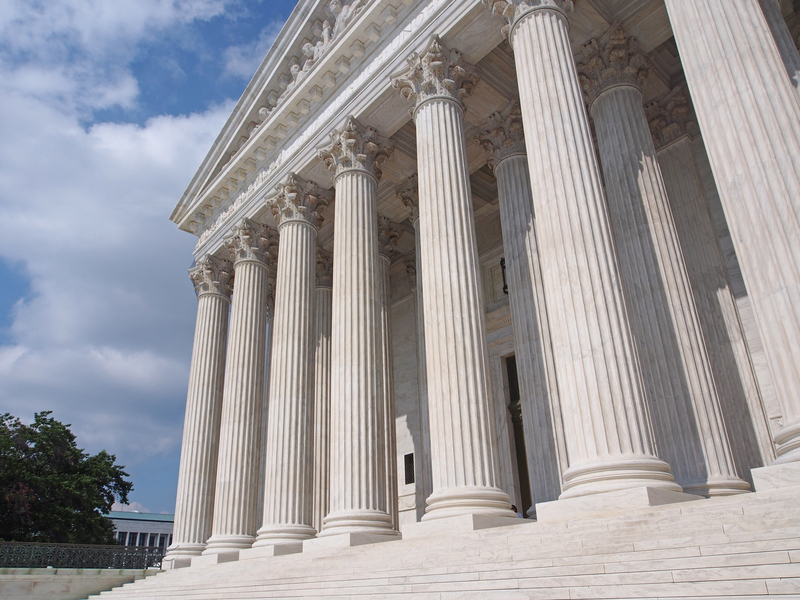
About This Blog
Noonan’s Notes Blog is written by a team of Hodgson Russ tax attorneys led by the blog’s namesake, Tim Noonan. Noonan’s Notes Blog regularly provides analysis of and commentary on developments in the world of New York and multistate tax law. Noonan's Notes Blog is a winner of CreditDonkey's Best Tax Blogs Award 2017.
Contributors
Timothy Noonan
Brandon Bourg
Mario Caito
Ariele Doolittle
Joseph Endres
Daniel Kelly
Elizabeth Pascal
Emma Savino
Joseph Tantillo
Craig Reilly
Andrew Wright
Stay Connected
Showing 5 posts in Multistate Matters.
Massachusetts v. Welch: Taxing a Nonresident on Intangible Stock Sales
As states continue to seek increased revenues, especially those high-tax states dealing with a dwindling tax base, we’re starting to see some states take unusual and fairly aggressive positions in tax cases. One recent example we covered involved New York and the enforcement of its “convenience rule” in the Zelinsky case. In November 2023, the Massachusetts Appellate Tax Board issued another doozy, holding in Welch v. Commissioner of Revenue that a nonresident could be taxed on the gain from the sale of stock. (Docket No. C339531 (November 29, 2023)).
COVID and New York’s Convenience Rule: Litigation Update
As our regular readers know (all 7 of them), one of the bigger SALT issues to come out of COVID, especially in New York, relates to New York’s “Convenience of the Employer” rule. Under that rule, wages that a nonresident employee earns while working outside of New York State are treated as New York-sourced income if the employee is working from home for their New York employer for their own convenience. As we reported back in October 2020, several months into the pandemic the New York Tax Department announced its position that COVID-related telecommuting would have no impact on its application of the convenience rule. And as we experienced in a number of personal income tax audits after that, the Tax Department extended this position even to situations where an employer had closed its office in New York.
Drips and Drops on Taxing Hedge Fund Managers’ Deferred Comp
For years, there have been whispers about a big 2017 tax issue for hedge-fund managers. What’s the deal?
Economic Nexus Extended Too Far – Hodgson Russ LLP v. Minnesota Department of Revenue
 During the spring of 2014, Hodgson Russ LLP (“Hodgson”) received a letter from the Minnesota Department of Revenue (“Minnesota Revenue”) that attempted to establish a new low in the states’ “race to the bottom” to establish the most minimal constitutional standard required to satisfy substantial nexus with an out-of-state taxpayer. Minnesota Revenue asserted that under suspect provisions of the Minnesota tax code, Hodgson had nexus with the state of Minnesota based upon a single, un-audited fact: between the 2004 and 2012 tax years, Hodgson received federal Forms 1099 from payors using a Minnesota mailing address. On account of this single fact – with no revenue floor or other safeguards – Minnesota Revenue asserted that Hodgson had nexus with Minnesota, and was therefore required to file Minnesota franchise tax returns and apportion its business income to the state.
During the spring of 2014, Hodgson Russ LLP (“Hodgson”) received a letter from the Minnesota Department of Revenue (“Minnesota Revenue”) that attempted to establish a new low in the states’ “race to the bottom” to establish the most minimal constitutional standard required to satisfy substantial nexus with an out-of-state taxpayer. Minnesota Revenue asserted that under suspect provisions of the Minnesota tax code, Hodgson had nexus with the state of Minnesota based upon a single, un-audited fact: between the 2004 and 2012 tax years, Hodgson received federal Forms 1099 from payors using a Minnesota mailing address. On account of this single fact – with no revenue floor or other safeguards – Minnesota Revenue asserted that Hodgson had nexus with Minnesota, and was therefore required to file Minnesota franchise tax returns and apportion its business income to the state.
The Supreme Court Declares Maryland Resident Tax Credit Structure Unconstitutional Because It Leads to Double Tax
 On May 18, 2015, the U.S. Supreme Court declared Maryland's resident tax credit structure unconstitutional because it subjected income earned outside the state to potential double taxation. The Supreme Court concluded in a 5 to 4 decision in Comptroller of the Treasury of Maryland v. Wynne that this structure impermissibly favored income earned within Maryland over income earned outside the state. According to the court, this effectively created a tariff that violated the dormant Commerce Clause of the U.S. Constitution.
On May 18, 2015, the U.S. Supreme Court declared Maryland's resident tax credit structure unconstitutional because it subjected income earned outside the state to potential double taxation. The Supreme Court concluded in a 5 to 4 decision in Comptroller of the Treasury of Maryland v. Wynne that this structure impermissibly favored income earned within Maryland over income earned outside the state. According to the court, this effectively created a tariff that violated the dormant Commerce Clause of the U.S. Constitution.
Here's a quick review of the facts of the case. Brian and Karen Wynne are Maryland residents. Like most states, Maryland taxes residents on their worldwide income regardless of its source. In other words, Maryland residents can pay tax on income earned outside Maryland. In 2006, Brian Wynne owned stock in a Subchapter S corporation that operated and earned income in other states. In fact, the S corporation filed income tax returns in 39 states. The Wynnes reported the income that flowed through to them from the S corporation on their Maryland income tax returns but also claimed an income tax credit for taxes paid to other states. Almost every state tax code contains a similar credit. These credits are designed to avoid double taxation and to allow for the proper allocation of the tax burden to the jurisdiction where the income was earned.
The problem in the case arose because Maryland imposed two taxes, a state tax and a county tax. Despite imposing two taxes, the Maryland credit for taxes paid to other states only applied to the state tax, not the county tax. Thus, the Wynnes ended up being double taxed on the S corporation income. They paid tax to the states where the income was earned, and they paid the Maryland county tax on the same income. According to the Supreme Court, this scheme violated the dormant Commerce Clause of U.S. Constitution.
This case is notable for several reasons:






